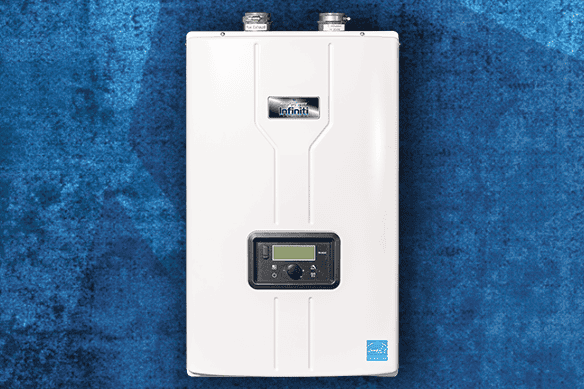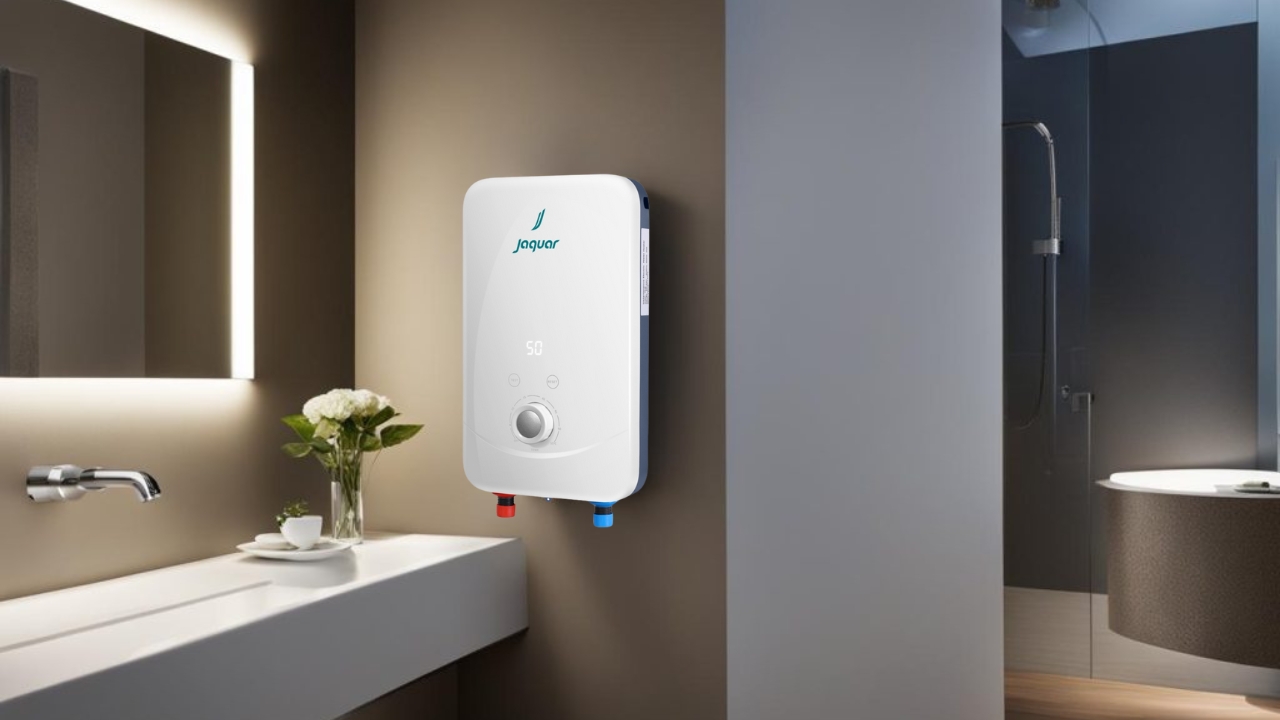Showing The Gains Of On-Demand Water Heaters
Showing The Gains Of On-Demand Water Heaters
Blog Article
Everybody seems to have their private thinking when it comes to Why You Should Consider a Tankless Water Heater.

In a globe where comfort and efficiency preponderate, it's not a surprise that house owners are constantly on the lookout for smarter ways to manage their home's power intake and convenience. One innovation that has actually continuously obtained appeal is the tankless hot water heater. However exactly what makes these systems stand apart from the conventional tank-based models a lot of us matured with? Let's dive in and explore the benefits of tankless hot water heater, assisting you make a decision if it's time to make the switch in your house.
Introduction
Photo this: you enter the shower after a lengthy day, expecting a calming waterfall of warm water, only to be greeted by icy droplets since the last person used it all up. Sound acquainted? Traditional hot water heater store a set amount of hot water, implying you're at the mercy of that container's supply. Tankless systems, on the other hand, heat water on demand. Say goodbye to going out mid-shower, say goodbye to fumbling with schedules just to make sure warm water is readily available.
Recognizing Tankless Hot Water Heater
What Are Tankless Hot Water Heater?
Tankless hot water heater, sometimes known as on-demand or instant hot water heater, give warm water only as it's needed. Instead of saving gallons of pre-heated water, these devices kick right into action the moment you activate the faucet. Water goes through a heat exchanger, warming up in real-time, indicating you obtain an uninterrupted flow of warm water without the demand for a huge storage tank sitting lazily by.
Exactly how Do They Differ from Traditional Equipments?
Typical heating units hold a reservoir of warm water, using energy to maintain that tank at a constant temperature level. Tankless units get rid of the standing supply, cutting down on squandered energy and the large impact of a huge cylinder. Essentially, you're upgrading from a "accumulation" attitude to a "made-to-order" approach.
Common Types of Tankless Units
Tankless water heaters typically can be found in 2 selections: gas and electrical. Gas versions often tend to provide greater circulation rates, suitable for larger households, while electric versions often offer smaller sized homes and are typically simpler to mount. In addition, some systems are created for point-of-use (serving one fixture) while others can take care of the entire home's hot water requirements.
Key Benefits of Tankless Water Heaters
Energy Performance and Price Financial Savings
Say goodbye to heating up a titan storage tank's worth of water and keeping it toasty all day. Tankless heaters reduce standby power losses, which can reduce utility expenses. While the initial price may be greater, the long-term financial savings typically warrant the investment.
3. Space-Saving Layout
If your home is short on storage, getting rid of the bulky container liberates valuable area. Tankless devices are compact and can often be mounted on wall surfaces, stashed in edges, or set up in tight utility closets without hogging the whole area.
4. Longer Lifespan
A well-maintained tankless hot water heater can outlive its tank-based cousin. Conventional containers could last 10-15 years, while tankless designs can keep downing along for twenty years or more, making them a solid financial investment gradually.
1. Limitless Hot Water Supply
Ever before had to schedule showers so every person gets their fair share of hot water? With tankless, that comes to be a thing of the past. As long as the heating system's flow capability isn't surpassed, you can take back-to-back showers without becoming a popsicle.
5. Improved Water High Quality
Storing water in a tank can in some cases lead to sediment accumulation or a somewhat "off" taste. With tankless systems, fresh water is heated right away, minimizing the possibilities of debris build-up and possibly providing cleaner-tasting water.
Factors to consider Prior To Changing
Though the advantages are compelling, it's important to consider a couple of variables before completely dedicating.
Reviewing Your Home's Water Use Patterns
If your household at the same time uses numerous components with high hot water need, make certain the system's flow rate fulfills your requirements. Knowing your use patterns assists you select the right size and kind of tankless heating system.
Upkeep and Care Tips
Tankless systems are relatively reduced upkeep, but they aren't set-it-and-forget-it home appliances.
Regular Cleansing and Descaling
Difficult water minerals can build up in the warmth exchanger, affecting performance. Regular descaling (typically suggested annually) maintains the unit performing at peak performance.
Yearly Professional Examinations
A yearly checkup from a specialist ensures minor issues are caught early. They'll evaluate the system's efficiency, search for leaks, and help maintain optimal efficiency.
Initial Investment Expenses
Tankless heating systems generally include a higher in advance price tag. Between the device itself and possible installment modifications, the initial expense may offer you sticker shock. But remember to view it as a long-term investment.
Installment Demands
Relying on your home's facilities, you could need extra electrical capacity or gas line upgrades. Guarantee you recognize the setup needs and seek advice from an expert to prevent shocks.
Ensuring Appropriate Air Flow
For gas models, appropriate air flow is essential to safely remove exhaust gases. Make certain airing vent systems are tidy and appropriately mounted to stop any kind of possible safety and security threats.
Contrasting Different Brands and Versions
Not all tankless hot water heater are developed equivalent.
Looking Into Dependable Makers
Try to find credible brand names with a background of generating quality systems. A reliable manufacturer often gives better client assistance and longer guarantees.
Installation: DIY or Specialist?
While some house owners cherish dealing with projects themselves, tankless installment could not be the very best time to break out the tool kit.
Advantages and disadvantages of DIY Installment
A do it yourself install might conserve cash, but it includes threats. Wrong setup can bring about inefficiency or safety issues. If you come in handy and have experience, it may be possible-- however proceed with caution.
Checking Out Evaluations and Individual Responses
Customer testimonials and responses from next-door neighbors or close friends who have gone tankless can supply beneficial insights. In some cases, real-life experiences can be extra telling than advertising pamphlets.
When to Call an Expert Plumber
For many, calling a pro ensures whatever's done correctly. An expert plumbing understands regional codes, sizing requirements, and venting criteria, lowering the danger of problems.
Maximizing Effectiveness
You have actually bought a tankless unit-- currently optimize its efficiency.
Optimal Temperature Setups
Most people set their devices in between 120-140 F. Readjusting the temperature level can boost convenience and financial savings. Experiment to discover a pleasant place that does not lose power.
Pairing with Low-Flow Fixtures
Want to stretch your unit's capabilities? Take into consideration setting up low-flow showerheads and faucets. They reduce water use, permitting your tankless system to provide a stable stream of hot water without straining.
Ecological Impact
Tankless hot water heater straighten with greener living goals.
Minimized Carbon Footprint
By using much less power and just home heating water as needed, tankless systems can lower your home's carbon footprint, reducing your ecological effect.
Conserving Natural Resources
Much less power usage and less thrown away warm water equate into less natural deposits being used, an ecological win-win.
That Benefits Many from Tankless Heaters?
The elegance of tankless heating units is that they can suit a selection of households.
Large Households vs. Single Passengers
Huge households might enjoy the unlimited warm water supply, while single residents value the power cost savings from not heating up a whole tank for just someone's early morning shower.
House Owners with Minimal Room
If your home is short on square video, shedding the cumbersome tank maximizes area for other basics-- or possibly just more breathing space.
Eco-Conscious Customers
Going tankless aligns with environmentally friendly worths, guaranteeing you're not wasting power or sources.
Future Fads in Tankless Hot Water Heater
The globe of home devices is ever-evolving, and tankless hot water heater are no exception.
Improvements in Innovation
R&D is regularly enhancing heat exchangers, making devices a lot more effective and durable. Future versions may be also quieter, a lot more compact, and far better suited for differing climates.
Smart Home Assimilation
Envision adjusting your water heater's temperature using an app or obtaining maintenance alerts on your phone. As smart home tech advances, we'll see more connectivity and convenience.
Final thought
Choosing a tankless hot water heater is more than just updating your home's hot water system; it's buying long-lasting convenience, energy effectiveness, and a greener way of life. By considering your house's water use, being mindful of installation requirements, and committing to regular maintenance, you can take pleasure in a constant stream of warm water without the baggage of a cumbersome tank. As innovation progresses, you can expect even smarter, much more reliable tankless remedies that not only make your life simpler however likewise profit the world.
5 Benefits of Tankless Water Heaters
Save Valuable Space
Since tankless water heaters do not have a massive 40+ gallon tank of water, they are considerably smaller and can fit in more narrow spaces in your home.
If you are working with limited square footage, a tankless water heater will still provide you with the hot water you need while taking up significantly less space in your home. While the exact size of a tankless water heater varies depending on the brand, some are as small as a carry-on suitcase.
Endless Supply of Hot Water
While a traditional water heater preheats and stores your water in the tank, tankless water heaters do not rely on a reservoir system.
This means that they do not run out of hot water like traditional water heaters since they make hot water as needed. Traditional water heaters need to stop and reheat water when the tank inevitably runs out, but tankless water heaters do not have this issue.
Provide Warm Water On-Demand
As mentioned above, tankless water heaters do not preheat a certain amount of water and then store it in a massive tank to be used later. An advantage of installing a tankless water heater includes water being heated instantly whenever you turn on the faucet.
When you turn on the water, it will travel through a heat exchanger in the unit and be heated with either an electric element or a natural gas burner. Gone are the days of having to ration out your hot water to make sure that you do not run out.
Longer Life Cycle
Not only do tankless water heaters provide an endless supply of hot water for your home whenever you want it, but these units tend to have a longer lifespan than water heaters with tanks.
Tanked water heaters have an average lifespan of around 10 years, as the tank is prone to corrosion, leading to serious issues. In comparison, tankless water heaters can last for around 15 to 20 years with the proper maintenance and tune-ups.
Energy Efficient
Compared to traditional water heaters, tankless water heaters are a more energy-efficient water heating option for your home. Tank water heaters must heat and reheat the water stored in the tank throughout the day, even if you are not home.
This energy use adds up over time, leading to an increase in your energy bills and added strain on your unit. A benefit of buying a tankless water heater includes saving money since it only operates when you turn on the hot water. Since it only heats up as needed, this can decrease your energy bills and save you money in the long run.
https://callrandazzo.com/blog/5-benefits-of-tankless-water-heaters/

As a reader on Pros and Cons of Tankless Water Heater, I think sharing that excerpt was worth the trouble. If you please take the time to distribute this post if you appreciated it. I value your readership.
View Website Report this page